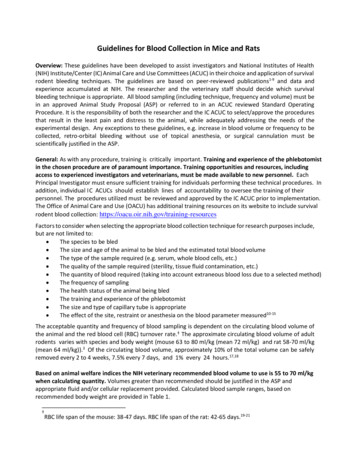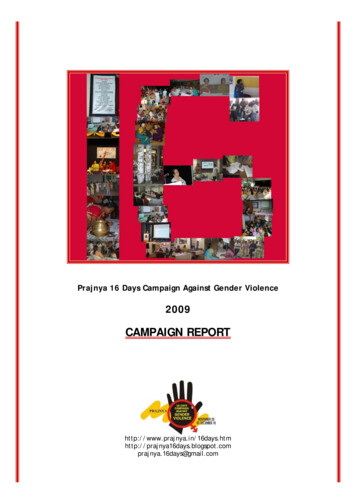
Transcription
Prajnya 16 Days Campaign Against Gender Violence2009CAMPAIGN ya16days.blogspot.comprajnya.16days@gmail.com
PRAJNYA 16 DAYS CAMPAIGN AGAINST GENDER VIOLENCE 2009 CALENDAREvents in Red are open to the g ToDomesticViolence: AWorkshopTHURSDAY226/11Reporters’Roundtable: GenderViolence & TheMediaFRIDAY327/11In Concert:CelebratingDefenders OfWomen’s RightsSATURDAY428/111. A Matter OfWords: A CreativeWriting Workshop2. Not Silence ButVerse: A PoetryReading104/12Symposium OnMental Health &Gender Violence115/12InternalDisplacement &Gender Violence: APSW Symposium529/11CollaborativeCooking:Recipes :A Roundtablefor ServiceProviders71/12Public Health &GenderViolence: e: AWorkshop (day1)93/12Exploring GenderViolence ThroughTheatre: AWorkshop (day 2)126/12Maaruvom,Maatruvom!:Serndusindikka orusandarpam(Public Forum)137/12GenderSensitisation &WorkplaceSexualHarassment: ATraining ofTrainers (day 1)148/12GenderSensitisation &WorkplaceSexualHarassment: ATraining ofTrainers (day 2)159/12Spotlight onServiceProviders1610/12“Empowerment,Equity & Freedomfrom Violence”The Prajnya 16Days CampaignPublic Lecture byDr. JayaArunachalamINFORMATION ABOUT THE PUBLIC EVENTSEventDateTimeIn Concert, featuringNov6S.Sowmya27p.m.Poetry ReadingNov6:1528p.m.Collaborative CookingNov29Maaruvom, Maatruvom!Dec 6 4p.m.Spotlight on ServiceDec 9 ProvidersPublic lecture by Dr. JayaDec6:30Arunachalam10p.m.VenueVani Mahal, G.N.ChettyRoad, T.NagarFull Circle @ Chamiers,Chamiers Rd.Online; sign up for emailupdatesYouth Hostel, Indira NagarSign up for email updatesBala Mandir German Hall,T.NagarLook out for our Media Initiatives!Print: The New Indian ExpressRadio: Chennai Live 104.8 FMandCampaign Chronicle, our blog @http://prajnya16days.blogspot.comCome cook up an end to violence againstwomen Drop your best recipes into our“paanai” at Planet Yumm at SpencerPlaza or Besant Nagar.Tie a white ribbon for every person youknow who is a victim of gender violence.“Ribbon plants” at Amethyst, the EcoCafé at Chamiers, Kipling Café or OdeGallery Café.
1Between 25 November and 10 December 2009, Prajnya organised the 16 Days Campaign against Gender Violence inChennai, for the second successive year. The 2009 edition retained the broad objective of the previous year’scampaign – to raise awareness of the different forms and manifestations of violence against women, but also choseto highlight certain specific aspects of gender violence.Why 16 Days?The 16 Days of Activism against Gender Violence originated in 1991 as an initiative of the Centre for Women’sGlobal Leadership at Rutgers University and has since been used as an organising strategy by several organisationsaround the world. Between 25 November and 10 December every year, the 16 Days Campaign draws the attention ofpolicy makers, governments and civil society to gender violence, and advocates for the elimination of all forms ofviolence against women.The campaign extends between International Day for the Elimination of all forms of Violence against Women (25November) and International Human Rights Day (10 December), thus emphasising that gender violence is alegitimate and critical human rights issue, and must be acknowledged as such. In addition, International WomenHuman Rights Defenders Day falls on 29 November, spotlighting countless individuals and organisations who dedicatethemselves to defending the rights of women throughout the year; and World AIDS Day on 1 December is anopportunity to highlight the impact of gender violence on public health issues such as HIV and AIDS.Why the Prajnya campaignDespite the increasing visibility of violence against women, despite the fact that most of us know someone whoknows someone who has been abused, people still ask us: why are you doing this campaign? Is this (gender violence)really a problem? And in a sense, that has become our catchphrase for the year: we do this campaign becausepeople ask us if gender violence is really a problem. There are other reasons as well: Because violence against women cuts across caste, class and community.Because gender violence is not a private concern.Because gender violence hurts us all, at every stage of our lives.The tip of the tip of the iceberg Rape is the fastest growing crime in India: between 1971 and 2001, the number of reported cases hasjumped by 733%. 10 million sex selective abortions are estimated between 1981 and 2005. 50% of Indian women who were abused reported abuse during pregnancy. Intimate partner violence causes16% of deaths during pregnancy. In Tamil Nadu, 76.8% of women asked about their experience of sexual violence identified their currenthusbands as perpetrators and 21.2% identified former husbands (NFHS-3). Over 68% of child domestic workers surveyed in a West Bengal study reported physical abuse, of whichmore than 20% were coerced into sexual intercourse.A big THANK YOU to all our campaign partnersAmethystAVTAR Interim Women Managers Interface NetworkChennai Live 104.8 FMFull Circle @ ChamiersInKo CentreInternational Foundation for Crime Prevention andVictim Care (PCVC)Kalki WeeklyKipling CafeThe Marappachi TrustThe New Indian ExpressOde Gallery CafeOmayal Achi College of NursingOriental Cuisines Pvt. Ltd.Queen Mary’s CollegeSchizophrenia Research Foundation (SCARF)Sornammal Educational TrustTulir – Centre for the Prevention and Healing of ChildSexual Abuse
2Features of the 2009 campaign Different programmes at different locationsOver the 16 days, Prajnya organised programmes and activities at multiple locations across thecity, and in cyberspace. Tailor-made and designed for specific groups, the majority called foractive participation. Some were open to the “general public”, while others were closed andrestricted to a particular constituency. Multiple formatsTo reach out to as many different people as possible, the campaign merged form and contentinnovatively using theatre, poetry, literature and art. Programmes included workshops,symposia, a poetry reading, a public concert, training programmes and an open forum, amongothers. Forging partnershipsIn keeping with Prajnya’s mandate to facilitate and create networks for action, the majority ofprogrammes were organised in partnership with other organisations, including educationalinstitutions, service providers, corporate groups, and civil society. Working in partnershipensures that gender violence remains everyone’s responsibility, and not just that of a fewselect non-profits. Emphasis on “process”Campaign programmes were conceptualised such that they would serve as triggers to begin andsustain conversations between professionals in various fields, by creating a platform for debateand expression. Gender Violence and “ .”The campaign reinforced the notion that we cannot look at gender violence in isolation, andmust also bear in mind its widespread and long-term consequences. Given that it is imperativefor health care professionals to learn, recognise, acknowledge and address the impact ofgender violence on the communities they work with, the linkages between gender violence andpublic health was a specific focus of this year’s campaign. Ribbon plantsFour cafes hosted “ribbon plants”, where you could tie a white ribbon onto a plant if you knewsomeone who had experienced violence. This was envisaged as an anonymous way in whichpeople could express their support for the campaign. Information InitiativesIn addition to the campaign calendar, Prajnya disseminated relevant information about genderviolence to the public at large. Every day, a “fact-box” appeared in The New Indian Express,our print media partners, highlighting aspects of a specific form of gender violence; a modifiedversion was also broadcast every day on Chennai Live 104.8 FM, radio partners for thecampaign. Pilot studyPrajnya took its first steps towards a comprehensive research agenda and programme, throughthe publication of a pilot report, “Gender Violence in India: a Prajnya Report”. This reportdraws on available data on the different forms of violence against women to highlight themagnitude of the issue, underscoring the need for more systematic monitoring and gathering ofdata related to crimes against women. The full report can be accessed online athttp://prajnya.in/gvr09.pdf.
3What we spent on the campaignPrajnya takes great pridein the fact that thecampaign is a genuinecommunity effort,funded entirely byindividual contributions.In 2009, we received atotal of Rs 1,58,670 asdonations towards thecampaign.This is how we spent themoney. and to all those who supported us, THANK YOU!Anupama SrinivasanNalini KrishnanBishnu N MohapatraNandhini ShanmugamChaitanya-The Policy ConsultancyNirupa SundaravaradanDhamo SriniPamela PhiliposeDipa Nag ChowdhuryPattammal RajagopaulGokul ChandrasekarK.A.RajuIndu BalachandranSarojini RajaramIntegra Software Service Pvt Ltd*Shyamala RajagopalanR. JaikumarStar Health and Allied Insurance Co LtdKasturi & Sons LtdV.SubramaniamKavitha D ChitturiTata Communication Ltd*Kavitha K Nair*R TharaLata ManiVasughi K AdityanLister Metropolis**Vivek Ltd*Malathi JaikumarWealth Advisors (I) Pvt Ltd*Manonmani Rangaswamy*Supported the Training of Trainers programme for human resources personnel.** Offered us the use of their space for the Training of Trainers programme.
41 To 16: A Day-By-Day AccountDAY 1RESPONDING TO DOMESTIC VIOLENCEIn partnership with Sornammal Educational Trust and PCVCWhat? A workshop on domestic violence forwomen from Self Help Groups (SHGs)across the city.Why?The impact of domestic violence onwomen is often invisible. This isespecially true of domestic workers whoare vulnerable to violence at both theirhomes and place of work. Through thisworkshop, we sought to communicatethe message that domestic violence isnot normal, and must not benormalised.How impact does domestic violence have on families and children? How does it affect a child’s socialbehaviour and performance at school? How can women speak up against different forms of control andthreat? These were some of the questions that were discussed at this three-hour introductory session.“It is the responsibility of women to become more aware of this problem, to intervene when possibleand help others who face violence”- Parimala, participantDAY 2REPORTERS ROUND TABLE: GENDER VIOLENCE AND THE MEDIAWhat? A structured, closed-door conversationbetween working journalists, moderatedby senior journalist and media criticAmmu Joseph, with the primaryobjective of identifying practicalguidelines for reporting on genderviolenceWhy?Given that gender violence is reportedmore often today than before, themedia has a distinct responsibility inhow they represent crimes againstwomen. This is especially crucial in thespecific vocabulary that is used orindeed, in some cases, ignored. It isvital to recognise gender violence forwhat it is and consciously use theappropriate “labels” in reporting.According to participants Cases of gender violence are sensationalised andmade routine. There is tremendous pressure on reporters andeditors to both package news as entertainmentand get to the story first. Often, this has resulted in insensitive reporting,inaccuracies and ‘single-source’ stories.Outcomes: Preliminary guidelines for reporting on gender violence were evolved and will be disseminated. A media watch group has been set up to monitor reportage.
5DAY 3IN CONCERT: CELEBRATING DEFENDERS OF WOMEN’S RIGHTSWhat? A public concert by CarnaticVocalist S Sowmya that celebrateswomen achievers, and morespecifically, women defenders ofhuman rights.Why?Prajnya believes that advocacy andawareness building exercises mustfind ways to work with traditionalidioms that are familiar to specificaudiences; in this case, Carnaticmusic as an integral aspect ofChennai’s ethos and culture.On the occasion of International Women Human RightsDefenders Day, Prajnya honoured four organisations inChennai - Pennurimai Iyakkam, Feminist Association forSocial Action, Forum for Women’s Rights andDevelopment and Centre for Women’s Development andResearch.“Prajnya has been very innovative in conceptualising thisprogramme,and asking us to honour each other”- Bhavani from Feminist Association for Social ActionPrajnya approached eminent vocalist, S. Sowmya, to be a part of our campaign with trepidation,preparing for a 'no'. What we got was a very warm and enthusiastic, "it would be a privilege." Sowmyahad given a great deal of thought to what she would perform at this concert. She chose to sing kritis inDevi's honour, compositions by female composers and songs by Subramaniam Bharati. Says Sowmya, “Iam a little child as far as my involvement with Prajnya is concerned, but I am an active child.” We lookforward to a long and wonderful association with her.
6DAY 4A MATTER OF WORDS: A CREATIVE WRITING WORKSHOP&NOT SILENCE BUT VERSE: A POETRY READINGWorkshop in partnership with InKo CentreReading in partnership with InKo Centre and Full CircleWhat? A creative writing workshop for college students, followed by a poetry reading session open tothe publicWhy?Very often, those who experience or witness gender violence choose to or are forced to remainsilent. This workshop and reading are intended to demonstrate that literature can offer bothreaders and writers opportunities to express themselves freely. A literary event is a therefore ameans of exploring the relationship between art and society and more specifically, the role ofthe artist in civic life.How can the process of writing help usunderstand gender violence?Workshop designed and led by K. Srilata, for studentsfrom various city collegesSivakami Velliangiri, Susan Hawthorne and KuttiRevathi read from their work at “Not Silencebut Verse”, a reading conceptualised andmoderated by K. Srilata.“Feminist poetry is like a double edged sword.Pointing outwards, the sword speaks out at thepropagators of violence and those who causehurt to women, however, pointing inwards, it islike a surgical knife- that heals and soothes.”- K Srilata, at the reading“Thank you for giving this wonderful opportunity to read with Susan Hawthorne and KuttiRevathi .what I have understood from her (Susan) reading is that the issues are the same on the otherside of the continent as well. I am sure we can create awareness by writing and reading.It is heartening to note such sincerity and enthusiasm and dedication in such young people. I am but adot in a vast canvas. I bow my head to this Prajnya movement which will gain momentum over theyears.”- Sivakami Velliangiri
7DAY 5COLLABORATIVE COOKING: RECIPES AGAINST VAWWhat? An online campaign, adapted from take back the tech to evolve recipes to end violence againstwomenWhy?How do we end violence against women (VAW)? This is your chance to tell us what you think:contribute one or more ingredients to a recipe to end gender violencePaanais at PlanetYumm,Besant Nagar andSpencer PlazaTravelling paanai atall programmesWiki, at http://prajnya16days.wikispaces.com/Recipes against VAWSample contributions: Meet women who work and live on the streets (sexworkers, hawkers, bus conductors etc) and havediscussions on public space and safety for women. Girls play with dolls, while boys play with cars. Suchgender-specific stereotyping should end right now. Some school textbooks are currently being modified tobecome more gender-friendly. This is a healthy and vitaltrend that must be replicated world-wide. There is a widespread notion that a woman who dresses"provocatively" is inviting trouble. There needs to berecognition and acceptance of the right to free choice andright to be respected irrespective of gender. A sensitised judiciary and law enforcement agencies willhelp address the problems of women victims of violencemore effectively. MOVIES! - sensible, admirable, believable roles forwomen!
8DAY 6REBUILDING LIVES, SUPPORTING SURVIVAL: A ROUNDTABLE FOR SERVICE PROVIDERSWhat? A closed group discussion amongst key staff and administrators from organisations thatprovide support services for women who experience violenceWhy?What challenges do these organisations face? What strategies can they adopt to helpwomen address, thwart and cope with different manifestations of violence?DAY 7PUBLIC HEALTH & GENDER VIOLENCE: A WORKSHOPIn partnership with Omayal Achi College of Nursing, Tulir and PCVCWhat? A workshop/training programme for nursing students to help them develop the skills andattitudes necessary to identify and empathise with those who have experienced violence.Why?It is essential to train health care professionals to identify and respond to those who haveexperienced violence effectively and empathetically.Nursing students learnt about gender and sexualviolence, how to identify those who haveexperienced it and how to help.“The role of a health care professional in agender violence incident is four-fold andincludes: identifying, assessing, documentingand educating.”Dr. Prasanna Poornachandra, PCVC“Nurses are the one-point contact in the case ofa medical emergency, and have an importantrole to play in the case of a sexually abusedpatient.”Nancy Veronica Thomas, Tulir
9DAYS 8 & 9EXPLORING GENDER VIOLENCE THROUGH THEATREIn partnership with Queen Mary’s College and The Marappachi TrustWhat? A two-day theatre workshop exploring issues of gender and gender violence, for studentsfrom Queen Mary’s CollegeWhy?So that young women can explore ways to address and cope with different forms of genderviolence. How can they relate these issues to their daily realities?Forms: Puppetry, recitation, story-telling,monologuesThemes: the female body, skin colour, dowry,female infanticide, forced marriages“The workshop was largely abouttapping collective experience,and providing a spacefor perceptions on body.”– Mangai, Marappachi“It was wonderful, incredible to see theenthusiasm with which they got involved, thegenuine introspection, the willingness to share.They shared with us stories from their lives, toldus about their relationships with their families,and spelled out how they intended to tacklesome of the more problematic ones.”- The Prajnya Team
10DAY 10MENTAL HEALTH & GENDER VIOLENCE: A SYMPOSIUMIn partnership with Schizophrenia Research Foundation (SCARF)What?A symposium for mental health professionals to discuss the strong correlationbetween gender violence and mental health.Why?There is considerable research-based evidence to demonstrate that those who haveexperienced or been subject to abuse or violence are at greater risk of developingmental health disorders/illnesses in later years.Key issues raised at the symposium:The symposium speakers included: Dr. Shuba Kumar on the impact of domesticviolence on mental health Dr. Shantha Kamath on the vulnerability ofthe mentally ill to gender violence Dr. Anita Rao on the effects of alcohol andsubstance abuse on gender violence andmental health Dr. Jayanthini on the impact of domesticviolence on the mental health of childrenand families Violence against women has profoundimplications for mental health which areoften ignored.Prolonged exposure to violence of any sortcauses physiological damage to the brain,resulting in physical, emotional,psychological and behavioural problems inchildren.The prevalence of abuse and domesticviolence is found more in cases when awoman’s job and income is higher thanthose of her husband’s.DAY 11INTERNAL DISPLACEMENT AND GENDER VIOLENCEA Prajnya Resource Centre on Women in Politics and Policy eventWhat? A symposium that draws attention to the experience and incidence of gender violence inthe context of internal displacement, whether as a consequence of disasters, developmentprojects or conflict.Why?More than 26 million people worldwide live as refugees in their own country, that is, asInternally Displaced Persons (IDP). Women, who form a preponderant majority of thosedisplaced, are rendered even more vulnerable as a consequence of being uprooted fromtheir space and possibly, separated from their support system. They face the threat ofabuse on a day-to-day basis with very little available by way of support, protection andjustice. The symposium speakers included Dr. Gladstone Xavier, Loyola College; Sr. Lourthumary, StellaMaris College; and Sujata Mody, Malarchi. The symposium discussed the impact of displacement due to conflict, disasters anddevelopment projects on women’s lives. Breakdown of support networks, loss of livelihood and an environment of captivity contribute tothe increased experience of gender violence by IDPs. Gender violence is a form of ‘systemic violence’, the speakers stressed, and the discussionconstantly referenced other political and social changes.
11DAY 12MAARUVOM MAATRUVOM: SERNDU SINDIKKA ORU SANDARPAM(Public Forum)In partnership with Kalki WeeklyWhat? A forum to generate public opinion on gender violenceWhy?Violence against women is not a private concern. This programme was therefore envisagedas a moderated public forum, with an open mic session, inviting individuals to express theirviews. Underlying attitudes ofviolence are indicative ofmasculinity. Emotional violence hasgreat consequences for awoman. Women are not women'senemies; societyindoctrinates us to think so. Gender violence must bemade a matter of shame. Students must be givenlegal literacy. In a patriarchal setup,violence is accepted as partof the marriage.DAYS 13 & 14GENDER SENSITISATION AND WORKPLACE SEXUAL HARASSMENT: A TRAINING OF TRAINERSIn partnership with AVTAR-IWINWhat?A two-day training programme for human resource professionals and social workstudents on gender sensitisation, workplace harassment issues and laws andproceduresWhy?Because in spite of being one of India’s main industrial and corporate hubs, Chennaidoes not have a corps of trained professionals able to offer advisory, counselling orconsultancy services in this area.What is workplacesexual harassment?What are the legalprovisions forcompanies?How canorganisations frameand implementpolicies?Workshop designedand led byHengasara HakkinaSangha
12DAY 15CALL FOR HELP: A PRAJNYA LISTING OF EMERGENCY NUMBERS FOR WOMEN IN DISTRESSWhat? An easily accessible directory of service providers and emergency help for women indistress.Available here http://prajnya.in/chennaihelplines.htmWhy?Because few people know where to go or whom to go to when they need help and few of usknow where to refer someone who needs help.DAY 16PRAJNYA 16 DAYS CAMPAIGN PUBLIC LECTURE: DR JAYA ARUNACHALAMEMPOWERMENT, EQUITY AND FREEDOM FROM VIOLENCE“ women must challenge a situation of overglorification of virtues of patience andendurance and fight perpetration of injusticeand inequality against women. So the need ofthe hour is more intolerance, impatience againstsuch social discriminations and to accelerate thepace of social change, instilling a new socialorder promoting genuine fraternity betweenboth the sexes.”The Public Lecture by Dr Jaya Arunachalam,President, Working Women’s Forum brought toan end 16 days of campaigning against genderviolence. Dr. Arunachalam reinforced theconnections between empowerment of women,their access to economic resources and freedomfrom violence.“There is no exaggeration in the number ofincidents of violence against women reported.They are indeed increasing and becoming moregruesome. Such violence threatens the basicrights of women.”Dr. Jaya Arunachalam, December 10, 2009
13SO HOW DID IT GO? AND WHAT HAPPENS NEXT?For Prajnya, making an impact means three things. One, obviously, we reach out to larger andlarger numbers of people through the campaign, including people who have never discussed orthought about gender violence before. Two, we really hope that those who are living with abuseeveryday begin to identify their experience as violence and not as punishment they deserve. This iswhy we have had public programmes as well as focused training and dialogue sessions. Three, westop talking about gender and sexual violence through euphemisms and use the real words: we saythe word rape; we say street sexual harassment and not eve-teasing.But actually measuring the “impact” of an advocacy initiative is always a tremendous challenge: onwhat basis do we judge the relative success or failure of a programme? In quantitative terms, bythe number of people who attend? Or in a more qualitative sense, by the actual content andsubstance of the programme? We’ve decided to do both.This is what we know, in terms of numbers, about the impact of the 2009 16 Days Campaign againstGender Violence Over 500 people attended our different programmesOur factboxes in The New Indian Express were circulated to an average of 146000individuals (average per issue readership in Tamil Nadu)A good percentage of Chennai Live’s 16 lakh daily listeners heard our factbox on airThrough Twitter, we were able to reach out to over 900 peopleIn addition, we know that we have a growing community of “followers” of both the blog, CampaignChronicle (prajnya16days.blogspot.com) and our Facebook page, both of which were regularlyupdated during the campaign period.More crucial to Prajnya’s long-term agenda is the sheer range of follow-up ideas and possibilitiesthat this year’s campaign has generated. These include Dialogues for a self-regulating media;Platform for support service providers to share ideas and experiences;Courses and workshops for trainee nurses;Special modules on gender violence and mental health;Interface between grassroots activists and government on gender violence;A coalition for action and sensitisation on workplace sexual harassment.It is evident that there is a genuine need for sustained research and advocacy efforts on genderviolence. Prajnya is willing and keen to facilitate these processes, along with committed partners.Moreover, we intend to launch a full-fledged research and information programme on genderviolence, which will both draw on learnings from the 2009 campaign and suggest potential activitiesfor future campaigns.Stay in touch with usDuring the Campaign seasonIn the Campaign ss.com
THE PRAJNYA TEAMAnupama Srinivasan, Campaign CoordinatorAmrutha RajDavidHamsini RaviMeera SrikantNandhini ShanmugamNirupa SomasundaramNirupama SarathySubhashini SelvanathanSumita PaiSwarna RajagopalanSweta NarayananUma VangalVasughi Adityan
- Online; sign up for email updates Maaruvom, Maatruvom! Dec 6 4 p.m. Youth Hostel, Indira Nagar Spotlight on Service Providers Dec 9 - Sign up for email updates Public lecture by Dr. Jaya Arunachalam Dec 10 6:30 p.m. Bala Mandir German Hall, T.Nagar Tie a white ribbon for every person you know who is a victim of gender violence.
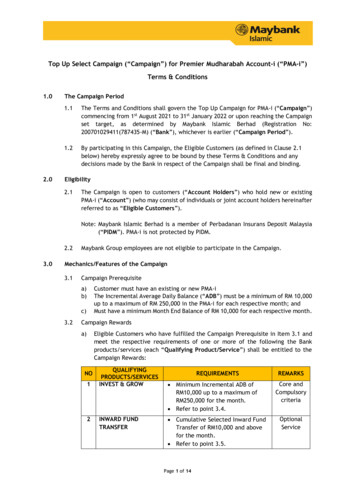
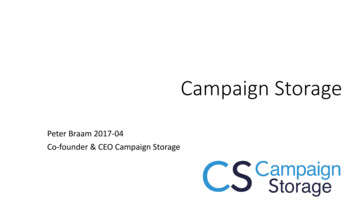
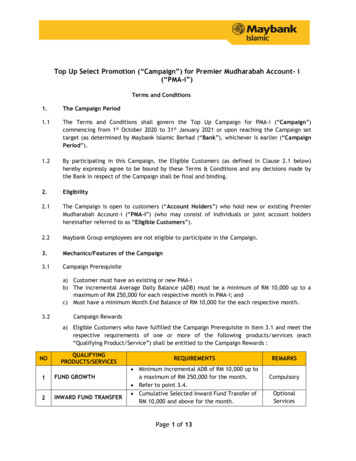

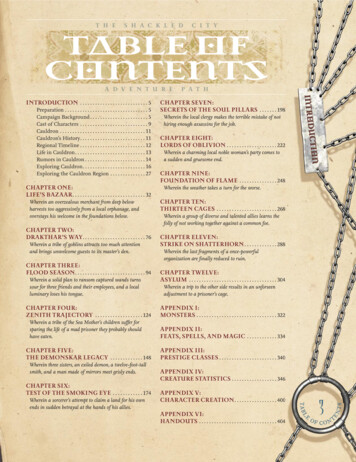

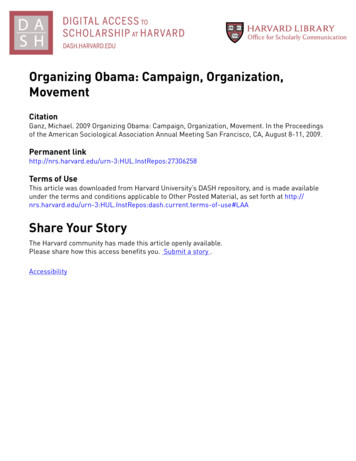

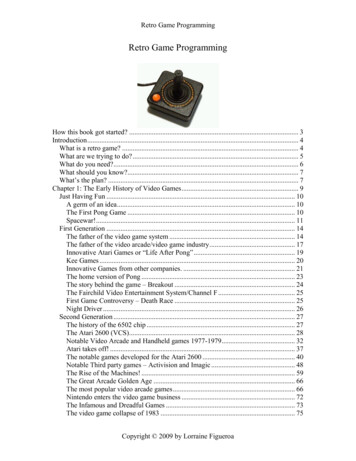
![[IV‐ADV‐9‐A] Tips and Tricks for Payroll and Human Resources](/img/9/tips-and-tricks-payroll-and-hr.jpg)
